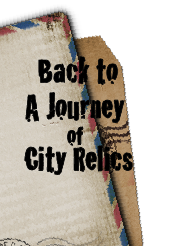



A revolution, of course, had to secure a strong base of financial resources. Thanks to the intolerably corrupted and incompetent Qing court, many merchants were munificent in aiding, directly or indirectly, the revolutionaries. Tycoons of Hong Kong like Ho Tung, Wei Yuk, Kwok Chuen and Lam Woo, and Shokichi Umeya from Japan, were especially keen to lend Mr. Sun a hand. Not a few wealthy men personally joined the revolutionary society, such as Li Yutang, his son Li Zizhong and his son-in-law Feng Ziyou, all members of Tongmenghui. Li Yutang was so devoted to the revolution that, although his business covered many industrial sectors, his wealth was almost wiped out after contributing millions of dollars every year to prop up revolutionary activities and the China Daily. Going after his father, Li Zizhong, who had befriended revolutionaries during his stay in Japan, founded a revolutionary school called Gwong Hon (meaning literally "illuminate Han") and took up a major role in Tongmenghui after coming back to Hong Kong. Li Yutang, moreover, opened Kam Lei Yun Medicine Store at Bonham Strand to facilitate the telegram communication and wire transfer of the insurgents, while another rich member, Li Haiyun, opened Yun Tong Yun Exchange on the second floor to stockpile munitions.
Li Ki-tong, the third son of Li Sing, the richest Chinese man of Hong Kong in the early days, was yet another important member of Tongmenghui. Like Li Yutong, his donations, which amounted to millions of dollars, were an enormous sum — almost the whole of his wealth. Apart from procuring munitions — that being his primary charge — Li Ki-tong had also bought a hundred acre of farmland in Qin Shan, Tuen Mun, as a disguised site for the sheltering of revolutionaries and the testing of weapons. He paid for the set up of He Ji Zhan and subsidized the Gwong Hon School, the Chinese Polytechnic institute and the Revolutionary Troupe. He was, as is widely acknowledged, the revolution's foremost benefactor.
It was for the bankroll and help of the merchants in Bonham Strand, as well as Mr. Sun's fundraising activities overseas, that the revolution was kept alive.
